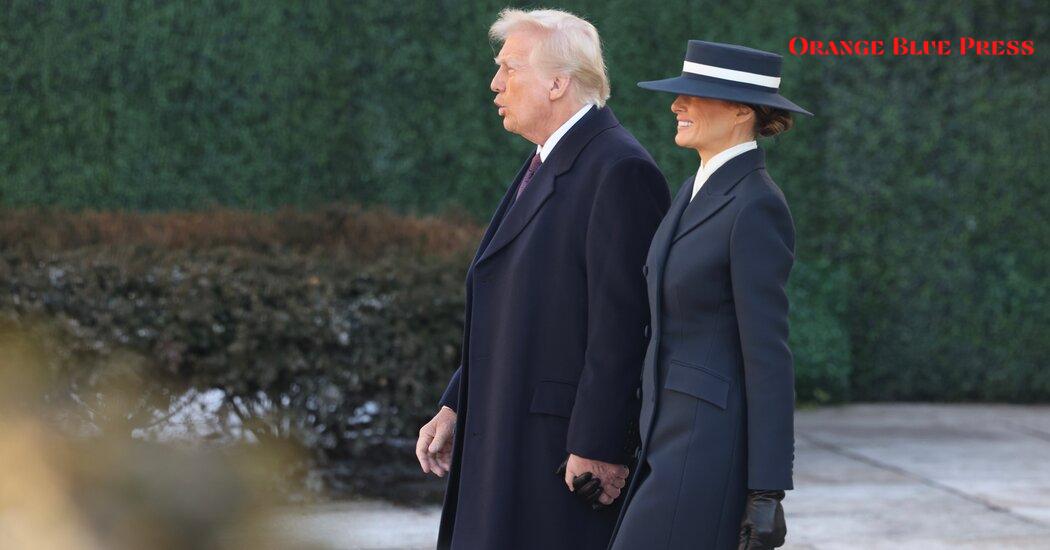The excitement and anticipation surrounding President Trump’s return to office are palpable, especially as he announced plans to implement numerous executive orders aimed at drastically changing the landscape of immigration in the United States. This announcement was made during a press conference held at Mar-a-Lago where Trump outlined some of his key initiatives that will take effect as soon as he steps into the White House for his second non-consecutive term.
Major Changes on the Horizon
President Trump is making it clear that immigration will be at the forefront of his agenda right from the start. His plans include a sweeping executive order that declares a national emergency at the southern border. This bold move is designed to enhance border security and will unlock federal funding towards this effort.
Declaring a National Emergency
Through a new executive action, Trump is expected to deploy military forces to the border as a part of a broader strategy to restrict asylum access for individuals trying to cross into the U.S. This means a significant shift in the country’s approach toward immigration, especially for those seeking refuge from dangerous situations.
Ending Birthright Citizenship
One of the most controversial aspects of Trump’s planned changes is an attempt to reinterpret the 14th Amendment, which could lead to the end of birthright citizenship for children born to undocumented immigrants in the United States. This proposal has faced significant pushback and is likely to spark legal challenges as discussions about the human rights of these children become central to the debate.
Increased Deportations and Stricter Enforcement
- Trump has declared that federal immigration agencies will ramp up their efforts in detention and deportation.
- A large operation targeting immigrants with criminal records is reportedly planned for the Chicago area, which aims to apprehend and deport individuals who are undocumented.
- The “Remain in Mexico” policy, which requires certain asylum seekers to wait in Mexico while their applications are processed, will also be reinstated.
Suspending Refugee Resettlement
Another significant move by Trump includes the suspension of the U.S. refugee resettlement program for at least four months. This plan has drawn criticism from various humanitarian organizations who believe it goes against America’s long-standing tradition of providing refuge to those in need.
Designating Gangs as Foreign Terrorist Organizations
As part of his executive actions, Trump plans to formally designate certain drug cartels and gangs as foreign terrorist organizations. By doing so, he hopes to bolster support for law enforcement and national security initiatives aimed at combating drug-related violence and improving safety for American citizens.
What’s Next: Public Response and Legal Challenges
As Trump sets out to make these sweeping changes, reactions are mixed. Supporters praise his strong stance on immigration control, while critics express concern over the potential human rights implications and the legal battles that may ensue. Whether these executive orders will stand up against legal scrutiny remains to be seen, but one thing’s for certain: Trump’s return is marked by a determined push to reshape key aspects of U.S. policy, especially on immigration.
| Executive Action | Description |
|---|---|
| National Emergency Declaration | Unlocks federal funding for border security enhancements. |
| Increased Deportations | Ramp-up in detention and deportation efforts. |
| End to Birthright Citizenship | Reinterpretation of the 14th Amendment could end citizenship for children of undocumented immigrants. |
| Suspension of Refugee Program | Four-month suspension of refugee resettlement efforts. |
| Designating Gangs | Declared as foreign terrorist organizations to strengthen law enforcement initiatives. |
In summary, President Trump’s ambitious plans to sign a flurry of executive orders on immigration and border security signal a robust start to his second term. As details continue to emerge, the impact of these changes will be closely monitored not only by supporters and critics alike but by all those affected within and beyond the borders of the United States.




















